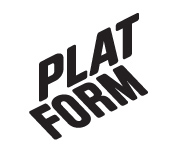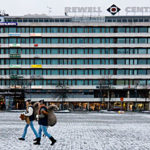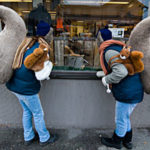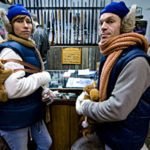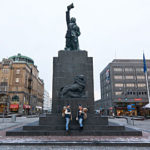Currently my art revolves around two practices; installation and drawing both of which are different though intersect conceptually and dialectically. The defining elements that are significant and continue through my works are those of space, movement, and material. Most importantly the common notions of understanding that binds them together, for example: an inherent understanding of inside / out, public and private, are simple points of a collective awareness that enables everything to exist in and navigate life. The alteration of such signifiers leads to a new understanding or a reflection on the meaning of space and environment.
In addition to installation, my practice has started to envelop drawing. With drawing I am able to add or separate additional elements to or from my foremost practice of installation. Drawing intersects my installation in a more ephemeral way, and generally hidden from public gaze. Drawing aids in a clearer focus towards a more subliminal space, a space that exists only in the media, newspapers or the internet.
Environment 1: No place.
Currently showing at the Oliver Holt Gallery, Dorset, UK. 28 February – 22nd March 2009.
“This environment does not guarantee the possibility of a happening but provides a pregnant space where participants must hang-on for a deferred experience. Indeed, like Kaprow’s, 18 Happenings in 6 Parts (1959) ‘no place.’ is experience by its audience only in sections. This is only a part of a larger, geographically and temporally disparate project, and it is unlikely that a participant can experience or grasp the totality of the work, certainly not from the episode presented here at the Oliver Holt Gallery. Understanding demands travel demands commitment to a global perspective, a claim to universality, ingrained in the acting out of the work. Sherborne is the most Southerly point of the three part project that arches beyond between Bristol and Vaasa, Finland. The spaces that Harris presents are performances from which all action has been stripped, the possibility for effective action is questioned, awaits interrogation. Feuerbach has said, ‘Without a doubt our epoch prefers the image to the thing.’ Harris insists on the importance of the act of the spectator in the movement away from things, with their increasingly dubious claims to authenticity, to simulacra with their desirable approximations and cinematic truth. The Situationist International demanded the elimination of all forms of representation, as a commodity the spectacular is developed to the detriment of the real”
Text by Andrew Stook, curator / director of the Oliver Holt gallery.

Environment 2: Man the interior designer.
Installation. Platform. Vaasa. Finland. Friday 20th March 2009.
“We are beginning to see what the new model of the home-dweller looks like: ‘man the interior designer’ is neither an owner nor a mere user – rather, he is an active engineer of atmosphere. Space is at his disposal like a kind of distributed system, and by controlling this space he holds sway over all possible reciprocal relations between the objects therein and hence over all the roles they are capable of assuming. (It follows that he must also be ‘functional’ himself: he and the space in question must be homogeneous if his messages of design are to leave him and return to him successfully.)”
Baubrillard, Jean. The System of Objects, Verso1996. Pp25
‘Man the interior designer’ as with ‘No place’ will be a built environment that imposes a starkness of object yet implies a vast presents of possibility. ‘Man the interior designer’ will be a place that is built to stand in and contemplate, contemplate notions of structure, placement and contrived decision-making. Once again the entire space will be engulfed by the artwork creating an environment / installation. Within this next installment of the three works platform will play host to the final primer for the finally show at Plan 9 in Bristol UK
Environment 3: Institute.
Duo exhibition, Mark J Harris / Duncan Mountford. Plan 9, Bristol, UK. 14TH May – 30th May 2009.

